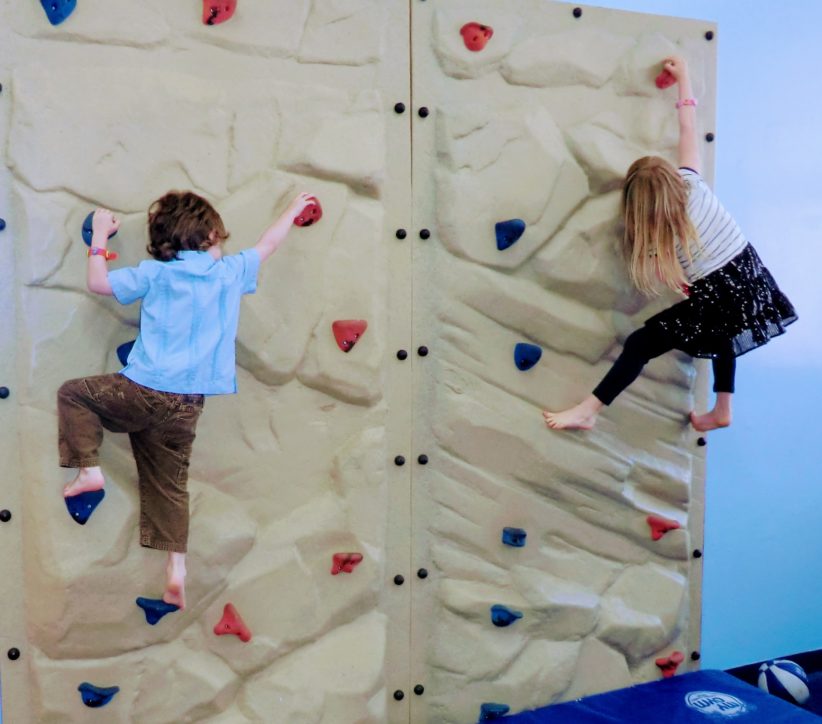When I was a medical student, the folks who wanted to enter emergency medicine seemed to fit a certain mold of effortless atheleticism: rock climbers, surfers, weekend soccer league players, people whose cords of toned muscle rippled under zero percent body fat. One of my UCSF classmates who went into EM auditioned and made the final cut for an Abercrombie ad campaign that used "real people" as underwear models. Another classmate took a year off from school to hike the Pacific Crest Trail. At first, I felt intimidated by my fellow med students interested in EM and their brawn.
While I liked and respected these folks, I was cut from different cloth; I was a theater arts geek at heart. I made mix tapes for girls I dug. My sister and I could recite virtually every line from the John Cusack movie Say Anything from memory. In the seventh grade, I played the leading role in our junior high production of Dr. Jekyll and Mr. Hyde. I was in two high school a capella singing groups. I won a trophy for my dancing in our high school production of Fiddler on the Roof, and received a Bank of America Achievement Award in Vocal Music at graduation (my wife swears it must have been given for "most improved").
Ultimately I realized that my arts background was an asset that gave me some definite advantages over my peers. First and foremost, years of practice left me at ease speaking in front of crowds. Being comfortable with public speaking may have contributed to my being elected first year class representative. (Then again, maybe it was inviting the entire class to watch the weekly episode of ER over a beer in our apartment that first week of school, which my roommates and I used as an excuse to co-host the event with the attractive med students who lived next door.) It certainly helped me present without undue stress during clinical rotations. Lesson: Leadership opportunities often result directly from public speaking skills.
In one of the musicals I participated in, I was paired as a freshman with a rather arrogant senior girl who underestimated my ability to lift her off her feet for a particularly complex dance move and made her lack of confidence known to everyone in earshot. By the end of the production, slurring her speech after one too many at the cast party after the final show, she confided that I'd been a competent dance partner and she apologized. Lesson: Don't let other's assessments of my abilities undermine my confidence. This came in handy during clinical rotations.
One of the skills refined in theater classes I took over the years was improv, the ability to take an unexpected situation and move forward with a response that is the essence of, "Yes, and..." An early memory of putting these skills into action was taking drama classes at the community center located in a park near my childhood home. Our culminating project was a play cast in medieval times, complete with wardrobe changes.
I must have been in the fourth grade, and recited one of my two lines with great fanfare, "All bow, here comes the king!" My friend, the king, did not appear. I tried once more, louder, "HERE COMES THE KING!" Nothing. I peeked backstage to find my the boy who would be king on the ground caught in a stubborn pant leg during a costume change, looking up at me with desperate eyes. "The king is taking a shower. He'll be out in a moment!" The audience laughed, my friend got his leg unstuck, and the play went on. I've found improv to be a terrific training ground for emergency medicine. Dead battery on your larygnoscope light during a crash intubation? "Yes, and..."


Comments 6
Great quick thinking of “the king is taking a shower” to get out of an awkward situation. It is amazing how things that we do as children that necessarily have no direct tie with our profession do come in handy. Thinking on your feet on stage was a precursor to you thinking on your feet as an ER doc.
Author
Kind of you to say, but the improvisation in the ED tends to be more along the lines of, “How do I get that foreign body out of that particular part of anatomy without waking up a surgeon unnecessarily?” The sense of butterflies, the idea that anything could happen – those stay with you in the ED. Thanks for stopping by XRV!
Interesting background
We all bring what we bring and for some of the peeps, probably most, and we’re just the right doc at the right time.
Author
Conceded, but how many docs can sing a rousing round of “Good King Wenceslas” in a seen-better-days baritone to soothe an elderly demented patient as they sew her facial laceration from a fall after one too many vodka tonics? Some moments bring out the old song and dance when you least expect it.
If I was your boss and you whipped out good l by wenceslas I’d make you pee in a cup
Author
Yet another reason to be part of a democratic group with a horizontal structure: the directors are considered servants of the group as a whole. My boss serves me!